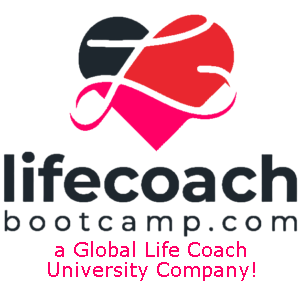Important: Before you study this lesson please watch this video, “Why?“. Example: If you or your client are in a relationship and the other person displayed an attitude of not being “Truthful”, you’ll need to master, and you’ll need to educate your client the following: “Confront and Level!”, “Assertive Communications!”, as well as “I Feel Good, PST!”.
There are several reasons why people turn to drugs:
Emotional trauma: When nothing seems to bring peace, some people turn to drugs. Various factors can push people to try drugs, such as the death of a loved one, divorce, losing the custody of children, ending relationships, abuse, loneliness, losing a job, not being able to achieve goals, dissatisfaction with life, a physical disability, and many more.
For physical effects: For some people, being high becomes the sole purpose of their lives. While some seek the high, some only take drugs to relax. Some people self-medicate themselves just to sleep better, to stop their minds from racing, or to put a halt to their thoughts.
Curiosity: Some people turn to drugs just because they are curious. They see people around them smoking and drinking casually and they wonder why they do it. Eventually, they give drugs or alcohol a shot and start indulging in the same.
Peer pressure: One of the most common reasons why teenagers and young adults start using drugs is because they succumb to peer pressure. Some start doing drugs because everyone else is doing it or it’s considered cool.
Some people start small. They begin taking substances that can turn their minds foggy and make them feel a little dizzy. It all becomes fun and soon they switch to something else to intensify the desired feeling. They switch to something stronger. As time passes and their tolerance levels increase, they start spending more and more on drugs seeking a more powerful high.
Some people start doing drugs at an early age while others get pushed into them in mid-life. Some people do it under social pressure while some self-medicate. The reasons might vary from person to person, from their emotional state to physical cravings. But the end result remains the same. Regret and shame follow them, and they find themselves powerless.
The shame:
Many people who struggle with drugs live with fear and shame. Initially, they try to hide the fact that they might have a problem and they can’t feel normal without snorting or injecting something in their bloodstream. As their tolerance levels increase, they start seeking more which starts taking a toll on their bank balance.
Soon starts a series of lies and unexplainable reasons to extract more money. Even when they realize that something is wrong with them, they fail to seek help. The shame keeps them from sharing their problems and as their friends and loved ones start distancing themselves, they find themselves alone.
Looking back, the inevitable regret:
Nothing pleasant comes from indulging in drugs. The high might provide people that momentary escape, might help them fill an emotional void they are experiencing, might help them enhance their performance for some time, or just simply help them sleep better at night, but it all comes at a price.
When drug addicts look back after making a recovery, they often find themselves drowning in regret. Many find themselves in the middle of serious health crises. While some develop mild health conditions, some develop long-term, life-threatening diseases and permanent disabilities. In addition to this, the piled-up hospital bills put them in long-term debt, forcing them to live with those consequences.
Not every drug abuser or drug addict is lucky enough to have people around them who is willing to put up with the tantrums, the abuse, and their consistent demands. Drugs and alcohol put relationships to the test, and many are left tarnished. While in many cases friends and family members distance themselves from the addict, some addicts distance themselves because of the shame and guilt they feel.
Many addicts spend significant time contemplating their actions. Most people after recovering regret their judgments and poor decisions. Their addiction makes them lose sight and also makes them miss out on opportunities. Regret eventually becomes an inevitable part of their recovery.
What can be done?
People must recognize and admit their struggle with drugs. That’s the first step to recovery. Talking about their problem to a trusted family member or a friend can help them reflect on their condition.
Getting clean is the best thing that addicts can do for themselves. Not everyone gets a second chance and if someone has a shot at having a normal life, they shouldn’t let their cravings steal that chance away.
It’s important to realize that the past is past and there is nothing that can be done to change it. Combating drugs takes courage, dedication, as well as discipline, and the fact that someone is willing to choose a drug-free life is a small triumph in itself. Walking away and making a choice of staying away from drugs permanently is a grand victory.
Addicts do have a chance to take responsibility and make amendments. They can turn their lives around for good, help others, and spread awareness regarding the consequences of taking drugs. Engaging in constructive activities, creating personal goals, long-term as well as short-term, can help them keep themselves distracted. Leaving toxic social circles and joining support groups can help drug users defeat addiction.
What steps did you take to quit drugs and how is life after becoming free from drugs? How was your journey and what challenges did you face?
The essay:
Please write an essay, up to two pages, about a past experience you or someone you know had a drug or an alcohol addiction. Tell us in detail, who, what, when, where, why, to whom, the place of what you did. The outcome! And tell us in detail how you could have changed that use from what you learned today so the outcome would have been good. Internalize this lesson. Make it become a part of you. Share your story in the Forums.
Our advice is for you to practice “staying sober,” if you’re a user, for at least a week. Tell others around you to point out any time in which you didn’t. Have them hold you accountable. Visit the “Forum” and do a “CONFESSION.”
What is a Confession? A Confession is when you’ve displayed a wrong behavior and were held accountable by one of your family members, peers, or even yourself. Visit the Forum and tell us about it. We will give you feedback! Make sure to watch the video about Confession for more details! Furthermore, become a member of the Forum and give feedback to others!
Read the article? Time to introspect!
- Have you ever met someone who struggled with drugs?
- Have you ever experimented with drugs? What pushed you to do so?
- Have you ever lied to a loved ones to get drugs? How do you feel about it now? Was it worth it?
- Do you feel guilty when you think about using drugs in the past?
- Do you prefer sharing your problems with your loved ones or do you keep things bottled up inside?
Sources:
https://emeraldcoastjourneypure.com/top-reasons-people-use-drugs/
https://www.drugfreeworld.org/drugfacts/drugs/why-do-people-take-drugs.html
This module includes the following:
- Introduction
- Why Become a Life Coach
- Drugs and Alcohol
- First Use of Drugs
- Drugs, Alcohol, and Your Health
- Damaging Consequences
- Outside Help to Drugs and Alcoholism
- The Benefits to Change
- Attitude Check & Confession
- Confront and Level
- I Feel Good, PST™
- Why?
There is no way any relationship will survive without having the qualities mentioned above.
Make sure to read each article carefully at least three time. Print your workbook (will be available per lesson.) Answer all questions and enter them in your workbook. Once you have completed this entire journey, you will be issued a Life Coach Certificate so long as you’ve been a member of the “Forums.”
Also, follow the instruction for sharing your story in our Forums as well as participating in our “Forums,” especially our unique “Confessions Forum” so you may gain practice, knowledge, experience, and expertise!
I am thankful that you have given me this opportunity to share all of this with you. May God bless you and bring prosperity and peace into your life.
Respectfully yours,
George Tannous, PhD
This is Where Confessions, Attitude Checks, Accountability, Give and Receive Feedback Comes in. Practice for Your Own Practice!
Well, you might be asking yourself “How am I going to get practice for my practice?” Great question and I thought you’ll never ask!
#1 You are part of a group with the same interests.
#2 You have a question in regards to one of your clients and we are here to help you.
#3 Others have questions and you can give feedback and help them.
#4 You need to do a confession.
#5 And much more.
You Are Never Alone! Join the Forums!
Once you have completed this entire journey, you will be issued a Life Coach Certificate. Must participate in our Forums to get certified! You’ll achieve your internship by joining and partcipating in our “Forums”.

